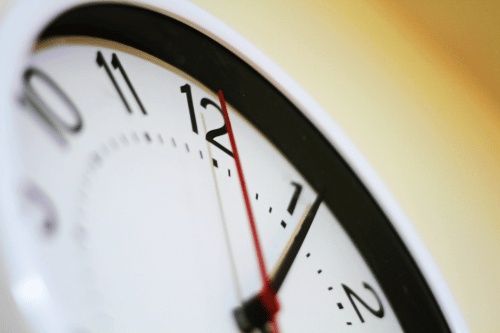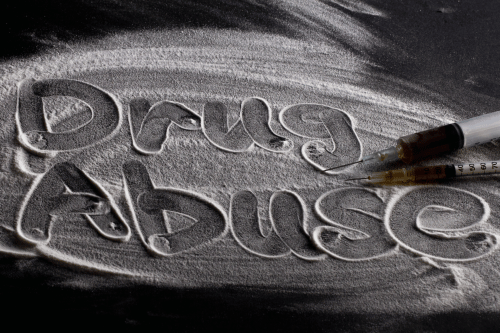
How Long Does Molly Last?
Molly, also known as MDMA or ecstasy, is a popular synthetic drug known for its euphoric effects, often associated with music festivals and social gatherings. However, the appeal of Molly comes with significant risks, especially in terms of its duration in the body and the potential for MDMA abuse and MDMA addiction. Understanding how long Molly lasts, how long does MDMA remain detectable in the body, its effects, and its risks is crucial for anyone considering its use or struggling with its consequences.
What is Molly (MDMA)?
Molly, or 3,4-methylenedioxy-methamphetamine, is a synthetic drug that alters mood and perception. It is chemically similar to both stimulants and hallucinogens, producing feelings of increased energy, pleasure, emotional warmth, and distorted sensory and time perception. Molly is often consumed in pill or capsule form, but it can also be snorted or, less commonly, injected.
The Onset of Molly’s Effects
When someone is taking MDMA, the drug’s effects typically begin within 30 to 45 minutes. This initial period, often referred to as the “come-up,” is marked by the onset of feelings of euphoria, increased energy, and heightened sensory experiences. The drug’s stimulating effects can make users feel more alert and social, often leading to increased physical activity, such as dancing at a music festival.
Peak Effects: How Long Does Molly Last at Its Strongest?
The peak effects of Molly are usually felt 1 to 2 hours after ingestion. During this time, users experience the most intense feelings of euphoria, emotional warmth, and connectedness to others. The heightened sensory perception, such as brighter colors and enhanced sounds, also reaches its peak during this period.
However, this intensity is not without risks. The body’s temperature, blood pressure, and heart rate can increase significantly, leading to potential physical health issues. Users must be aware that these effects can lead to dangerous outcomes, particularly in hot, crowded environments like concerts or clubs.

How Long Does Molly Last Overall?
The overall duration of MDMA’s effects can vary based on several factors. Typically, the main effects of Molly last for 3 to 6 hours. However, some users report experiencing mild effects for up to 8 hours after ingestion. This longer period of effects can include altered perception and mood, though these are usually less intense than the peak effects.
It’s important to note that while the pleasurable effects may diminish after the first few hours, the physical effects such as increased body temperature and elevated blood pressure may persist for a longer time, posing ongoing risks to the user.
Factors Influencing How Long Molly Lasts
Several factors can influence how long Molly lasts in the body and how intensely its effects are felt. These factors include:
- Dosage: Higher doses of Molly will naturally result in stronger and longer-lasting effects.
- Individual Metabolism: People with faster metabolisms may process the drug more quickly, leading to a shorter duration of effects.
- Drug Purity: The purity of the Molly taken plays a significant role. Impurities or other substances mixed with MDMA can alter the drug’s effects and duration.
- Physical Health: Individuals with certain physical health conditions may experience the effects differently or more intensely.
- Combining MDMA with Other Drugs: Mixing Molly with other substances, such as alcohol or marijuana, can prolong its effects and increase the risk of a very dangerous reaction.
The Risk of MDMA Abuse
Molly is often seen as a party drug, but the risks associated with its use are significant. One of the primary dangers is MDMA abuse. Repeated use of Molly can lead to tolerance, where users need to take larger doses to achieve the same effects. This increases the risk of overdose and other severe health complications.
MDMA abuse is particularly concerning because it can lead to both physical dependence and psychological dependence. Users may find themselves craving the drug and feeling unable to enjoy social situations without it. Over time, this can lead to substance abuse issues that are difficult to overcome without professional help. Understanding the potential for psychological dependence is essential in making informed choices, and support services are crucial for individuals struggling with drug abuse.

The Potential for MDMA Addiction
While not everyone who uses Molly will become addicted, the potential for MDMA addiction is real. Psychologically addictive substances like Molly can be particularly insidious because the addiction is often more mental than physical. Users may feel that they need the drug to feel good or to cope with stress, leading to regular use and eventual addiction.
MDMA addiction can have devastating effects on a person’s life, affecting their physical health, mental health, relationships, and overall well-being. The risk of addiction increases with frequent use, particularly in environments where the drug is easily accessible, such as at music festivals or clubs.
Withdrawal Symptoms and the Crash After Molly
After the effects of MDMA wear off, users often experience a “crash.” This crash is characterized by extreme fatigue, sleep disturbances, and a significant drop in mood and well-being. This period can last for several days, during which users may feel anxious, irritable, and depressed.
The withdrawal symptoms associated with MDMA are not as severe as those of some other drugs, but they can still be challenging to manage. Users may experience cravings for the drug and a strong desire to use again to alleviate the negative feelings.
The Importance of Medical Supervision During Withdrawal
For those who have developed a dependence on Molly, going through withdrawal without medical supervision can be difficult and dangerous. Medical supervision during the withdrawal process ensures that the individual is safe and that any physical health complications are addressed promptly.
Detoxing from MDMA under the care of professionals also provides the opportunity to begin treatment for substance abuse issues. This is crucial for long-term recovery and for addressing the underlying causes of the addiction.
Long-Term Effects of MDMA Use
Long-term use of Molly can lead to significant and lasting effects on both physical and mental health. Regular use can result in memory problems, difficulty concentrating, and impaired cognitive function. These issues can persist long after the drug has left the body, affecting a person’s ability to perform daily tasks and maintain relationships.
Additionally, long-term MDMA use can lead to serious physical health problems, including heart problems, liver damage, and impaired kidney function. The high body temperature caused by MDMA can also lead to dehydration and heatstroke, particularly in environments where the drug is commonly used, such as crowded clubs or festivals.

Mental Health Risks Associated with MDMA
The mental health risks associated with MDMA are particularly concerning. Depression and anxiety are common among regular users, and these conditions can worsen over time. The drug’s effects on the brain’s serotonin system, which regulates mood, can lead to a long-term imbalance that is difficult to correct.
In some cases, MDMA use can trigger or exacerbate post-traumatic stress disorder (PTSD), particularly in individuals who have experienced trauma. The intense emotional experiences caused by the drug can bring suppressed memories and feelings to the surface, leading to a resurgence of PTSD symptoms.
The Role of Drug Purity in MDMA Use
One of the most significant dangers of using Molly is the uncertainty about the drug purity. MDMA is often mixed with other substances, some of which can be more harmful than the drug itself. Users may believe they are taking pure Molly, but in reality, they could be ingesting a combination of other drugs that increase the risk of a dangerous reaction.
Testing the purity of MDMA before use is one way to reduce this risk, but it is not foolproof. Even with testing, the inherent dangers of the drug remain, particularly for those who use it frequently or in large doses.
The Dangers of Mixing MDMA with Other Substances
Mixing MDMA with other substances is a common practice, but it significantly increases the risks associated with the drug. Combining Molly with alcohol is particularly dangerous, as it can lead to dehydration, overheating, and an increased risk of heart problems. Marijuana and other stimulants can also interact negatively with MDMA, leading to unpredictable and potentially life-threatening effects.
The practice of combining MDMA with other drugs is often done to enhance the high or to counteract some of the drug’s less desirable effects, such as the “come-down” period. However, this significantly increases the risk of a very dangerous reaction and long-term damage to both physical and mental health.
Treatment Options for MDMA Addiction
For those struggling with MDMA addiction, various treatment options are available. Treatment typically begins with detoxification, where the drug is allowed to leave the body in a safe and controlled manner under medical supervision. This process can be challenging, especially for those with a strong dependence on the drug.
Following detoxification, behavioral therapy is often used to address the psychological aspects of the addiction. Cognitive-behavioral therapy (CBT) is one of the most effective treatments, helping individuals change the thought patterns that lead to drug use. Group therapy and support groups can also provide valuable support during recovery.
The Importance of a Holistic Approach to Treatment
A holistic approach to treatment is often the most effective way to address MDMA addiction. This approach considers the individual as a whole, addressing not just the addiction but also the underlying mental health issues, such as depression, anxiety, or PTSD. Holistic treatment may include therapies such as meditation, yoga, and nutritional counseling, in addition to traditional therapies.
At Mountain Sky, we offer a range of treatment options tailored to the individual’s needs, ensuring that every aspect of their well-being is addressed. Our holistic approach to recovery focuses on healing the mind, body, and spirit, providing the best possible chance for long-term recovery.
Conclusion: Understanding the Risks and Seeking Help
Understanding how long does Molly last and the associated risks is crucial for anyone who is considering or currently using the drug. While the immediate effects of Molly, such as heightened euphoria and altered sensory perception, may seem enticing, the reality is that MDMA is addictive. It produces feelings of intense pleasure and emotional warmth that can make it difficult for users to resist repeated use. This allure, however, comes with significant dangers.
The question of is MDMA addictive? Means that users are at risk of developing a dependency on the drug. This dependency can quickly spiral into MDMA abuse, leading to a range of physical and psychological issues. The drug’s ability to produce feelings of euphoria is precisely what makes it so dangerous, as it can mask the harmful effects and encourage continued use, despite the increasing risk to one’s health.
Over time, the repeated use of MDMA can lead to severe mental health consequences, including depression, anxiety, and cognitive impairments. These issues can persist long after the drug’s effects have worn off, making recovery even more challenging. Additionally, the addictive nature of MDMA means that users may find themselves unable to function without it, further deepening their dependency and complicating their path to recovery.
If you or someone you know is struggling with substance abuse issues related to Molly, it is vital to seek professional help as soon as possible. Recovery from MDMA addiction is challenging, but it is possible with the right support, treatment, and a commitment to change. The road to recovery involves addressing not only the physical dependence on the drug but also the underlying emotional and psychological factors that contribute to its use.
Comprehensive treatment options, including therapy, medical supervision, and holistic approaches, can provide the necessary tools and support to overcome MDMA addiction. The journey may be difficult, but with persistence and the right help, it is possible to reclaim control over your life and achieve lasting recovery. Remember, the decision to seek help is the first and most important step on the path to healing and well-being.
Seeking Treatment? We Can Help!
We work with PPO Out of Network Health Insurance Policies
If you or a loved one are struggling with mental health challenges or substance abuse, reach out to Mountain Sky Recovery today. Our team of compassionate professionals is here to support your journey towards lasting well-being. Give us a call at 951-877-5868.
FAQs For How Long Does Molly Last?
1. How long does Molly stay in your system?
Molly, or MDMA, typically stays in the body for about 1 to 3 days after use, depending on factors like dosage, metabolism, and overall health. The drug is primarily processed by the liver and then excreted through urine. However, while the main effects of the drug usually last 3 to 6 hours, traces of MDMA can be detected in urine for up to 3 days and in hair for several months.
2. Can the duration of Molly’s effects vary from person to person?
Yes, the duration of Molly’s effects can vary significantly based on individual factors. These include a person’s metabolism, body weight, and the presence of other substances in the body. Additionally, the purity of the MDMA and the environment in which it’s taken (such as a crowded club versus a quiet setting) can also influence how long and how intensely the effects are felt.
3. What are the dangers of combining Molly with other substances like alcohol?
4. Is it possible to become addicted to Molly after just a few uses?
Yes, it is possible to develop a psychological dependence on Molly even after just a few uses. MDMA is addictive because it produces feelings of intense euphoria and emotional closeness, which can lead users to seek out these experiences repeatedly. Over time, this can lead to MDMA addiction, where the individual feels compelled to use the drug despite the negative consequences to their physical and mental health.




